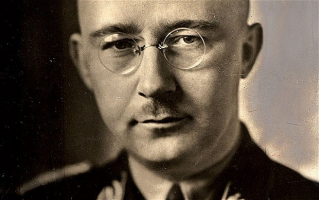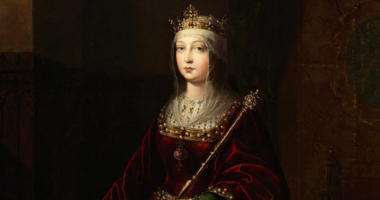Top 10 Interesting Facts about Mikhail Gorbachev
Mikhail Gorbachev, the last president of the Soviet Union, is regarded as one of the most important and divisive politicians of the 20th century. For his ... read more...dedication to international relations and his crucial role in de escalating the Cold War, he received the Nobel Peace Prize in 1990. However, Gorbachev's presidency would be remembered most for the fall of the Soviet Union. On Christmas Day in 1991, Gorbachev unintentionally resigned as the de facto head of the USSR, saying, "I am leaving my job with apprehension, but also with hope, with faith in you, your wisdom and force of spirit. Here are some interesting facts regarding Mikhail Gorbachev's century-defining life.
-
Gorbachev was born in the impoverished peasant family of Russian and Ukrainian descent in Privolnoye, Stavropol Krai. Before joining the Communist Party, which at the time ruled the Soviet Union as a one-party state in accordance with the dominant interpretation of Marxist-Leninist philosophy, Joseph Stalin worked as a combine harvester operator on a collective farm when he was younger. He married Raisa Titarenko, a fellow student at Moscow State University, in 1953, and graduated from law school in 1955. He relocated to Stavropol and began working for the Komsomol youth group. After Stalin's death, he firmly supported Nikita Khrushchev's de-Stalinization efforts.1970 saw his appointment as the Stavropol Regional Committee's First Party Secretary, where he oversaw the building of the Great Stavropol Canal.
He moved back to Moscow in 1978 to take up the position of Secretary of the party's Central Committee. In 1979, he joined the Politburo, which governs the party. Following the brief administrations of Yuri Andropov and Konstantin Chernenko, which ended three years after the death of Soviet leader Leonid Brezhnev, the Politburo elected Gorbachev as General Secretary, the de facto leader of the government, in 1985. In the Stavropol Krai settlement of Privolnoye, Mikhail Sergeyevich Gorbachev was born on March 3rd, 1931. The kid, originally called Viktor, was privately baptized "Mikhail" by Gorbachev's Ukrainian mother, Maria Panteleyevna, an ardent Orthodox Christian. His parents had one other son after World War Two, Aleksandr.
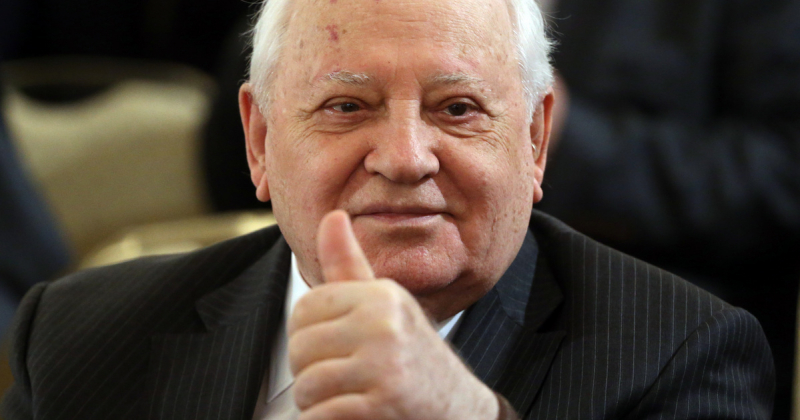
Source: iask.hu 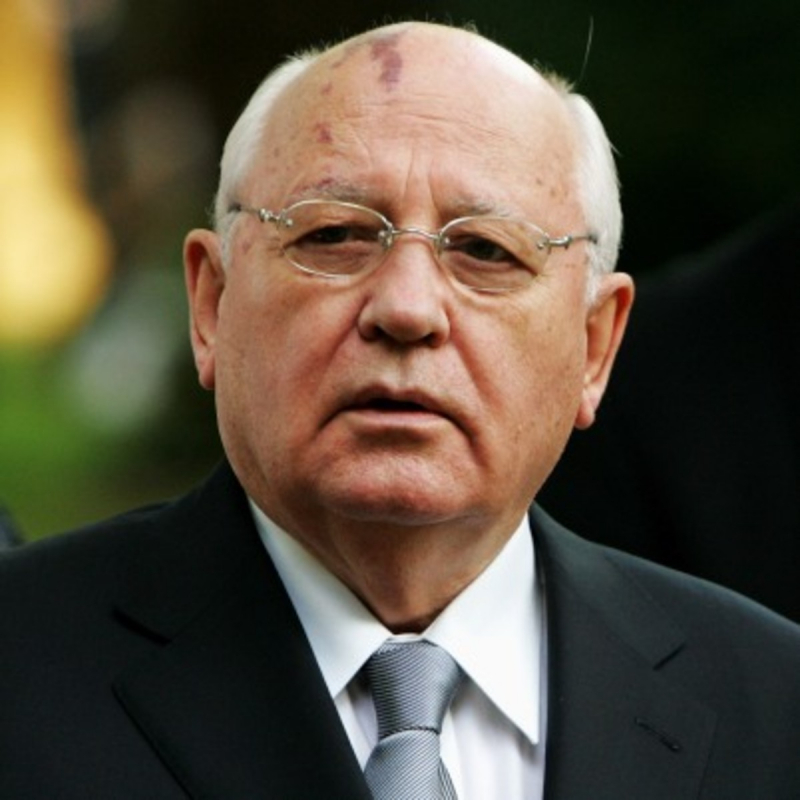
Source: blogspot.com -
Stalin launched a vigorous program of systematic socialization at the beginning of the 1930s. Rapid industrialization, collective farming, and the eradication of "class enemies" were all parts of putting Stalin's plan into action. Gorbachev's paternal uncles and aunt perished in the catastrophic famine that Stalin's actions caused in Ukraine between 1931 and 1933. Both of his grandfathers were later detained and deported to gulags when the government searched for "enemies of the people."
Mikhail Gorbachev was raised in a divisive political environment. Gorbachev endured the agony of witnessing his maternal grandpa Pantelei Gopkalo's incarceration during the Great Purge when he was a little child in the 1930s. Gopkalo spent 14 months in prison and under torture after being charged of being a Trotskyite counterrevolutionary. He was spared from death, much to the relief of his family. Growing up, Mikhail Gorbachev experienced a turbulent economic environment. Southern Russia experienced a severe drought in 1933. Due to the area's reliance on agriculture for both food and revenue, its citizens experienced famine, and many of them perished from starvation.
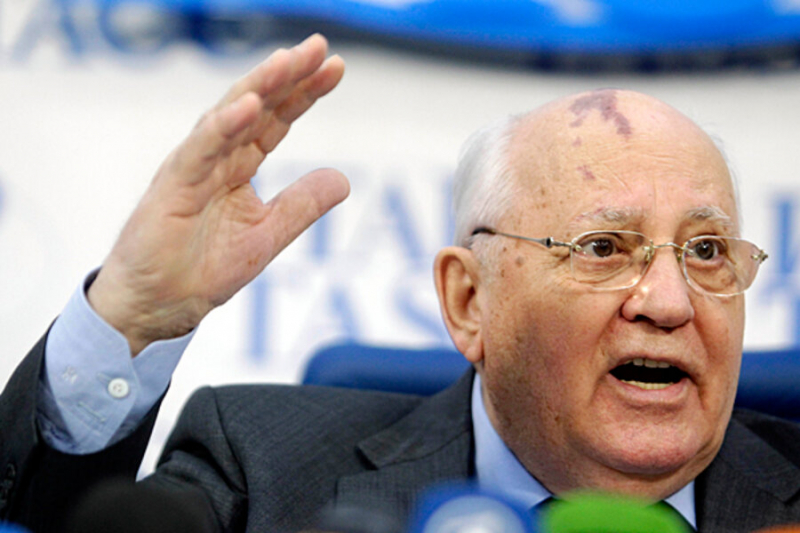
Source: The Christian Science Monitor 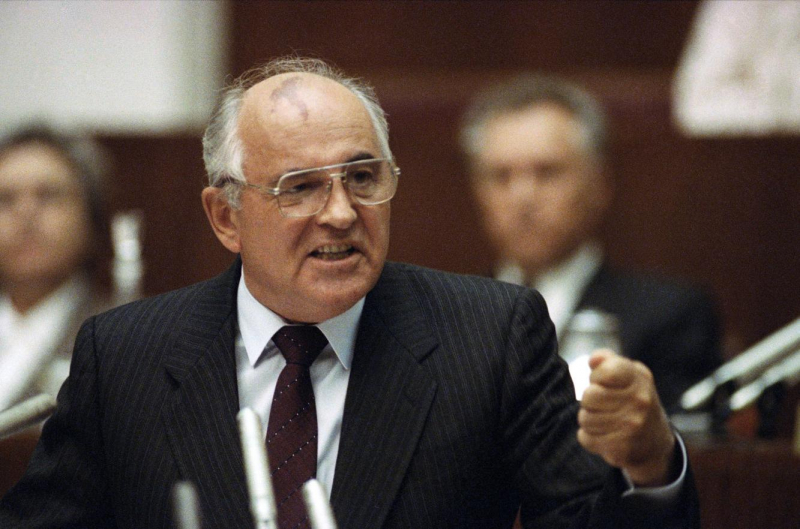
Source: jg-tc.com -
Gorbachev participated actively in the Komsomol Soviet youth organization while he was a student, soon ascending to the position of group leader in his area. Gorbachev and his father, Sergey, regularly put in 20 hours per day in the fields during the summer thanks to their extraordinary work ethic. They harvested almost 80 tonnes of grain in 1948 as a result, earning Sergey the Order of Lenin and his son the Order of the Red Banner of Labor for their accomplishment. In 1950, Gorbachev formally joined the Communist Party.
Gorbachev was dedicated to maintaining the Soviet Union and its socialist goals, but he also saw the need for considerable reform, notably in the wake of the Chernobyl nuclear accident in 1986. He left the Soviet-Afghan War and began holding summits with Ronald Reagan to reduce nuclear weapons and put an end to the Cold War. Domestically, his perestroika ("restructuring") initiative tried to decentralize economic decision-making in order to increase efficiency, while his glasnost ("openness") policy allowed for increased press and speech freedom. The one-party regime was damaged by his democratic reforms and the creation of the elected Congress of People's Deputies.
When some Eastern Bloc nations renounced Marxist-Leninist rule in 1989–1990, Gorbachev chose not to intervene militarily. The Soviet Union was under internal threat from rising nationalist sentiment, which prompted Marxist-Leninist hardliners to attempt the attempted August Coup against Gorbachev in 1991. As a result, Gorbachev resigned and the Soviet Union disintegrated against his desires. After leaving office, he launched his Gorbachev Foundation, became a vocal critic of Russian presidents Boris Yeltsin and Vladimir Putin, and campaigned for Russia's social-democratic movement.
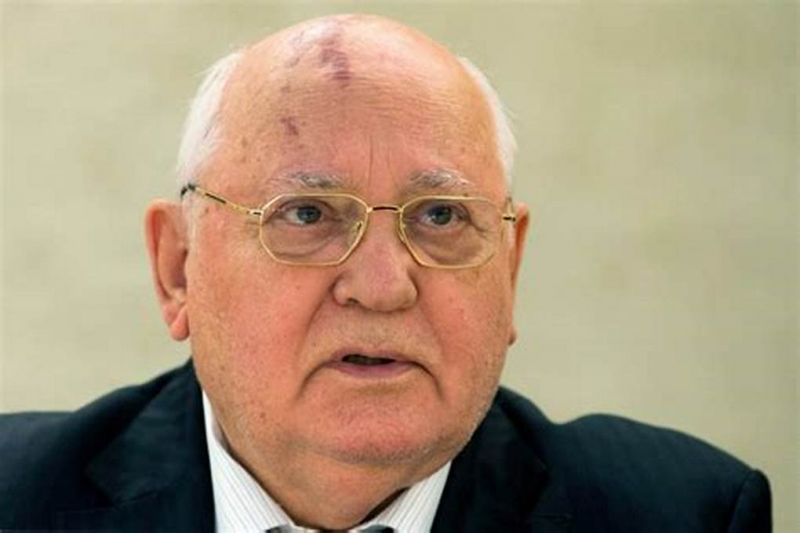
Source: CTV News 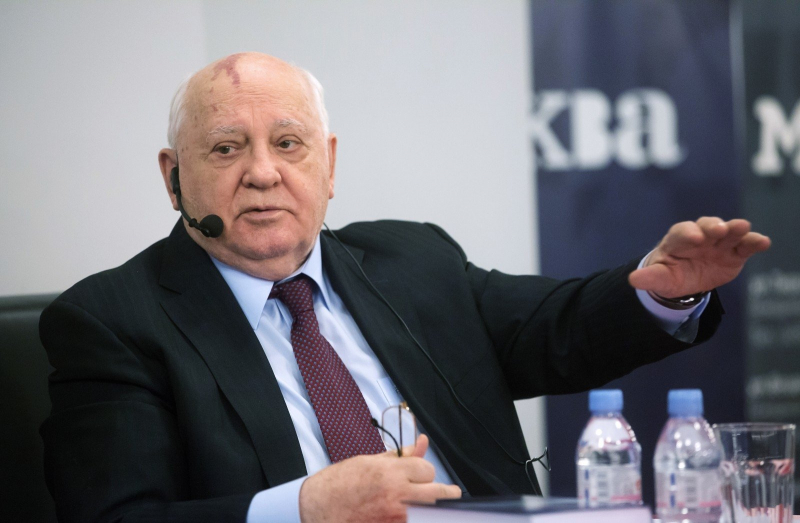
Source: en.delfi.lt -
Despite law not being a very popular subject in the Soviet Union at the time, Gorbachev enrolled in Moscow's law school in 1950. He had a reputation for speaking up in class and serving as a mediator in times of tension. He demonstrated his willingness to challenge Soviet authority on a number of occasions. He disagreed with the Soviet legal doctrine that held that confessions implied guilt since confessions may be coerced.
Gorbachev joined the Communist Party as a candidate member in June 1950. Additionally, he applied to study law at Moscow State University (MSU), which at the time was the most prestigious institution in the nation. Due to his worker-peasant ancestry and holding of the Order of the Red Banner of Labour, they likely accepted him without asking for an exam. His decision to study law was exceptional because at the time, Soviet society did not value legal studies. He left his home region for the first time at the age of 19 when he took a train to Moscow.
Gorbachev lived in the city at a dorm in the Sokolniki District with other MSU students. He and other students from the countryside were at odds with their Moscow classmates, but he quickly began to fit in. His arduous work habits and frequent late-night hours are remembered by his fellow classmates. He developed a reputation for mediating disputes and for speaking up in class, but he would only share some of his opinions in private. For example, he confided in some students that he disagreed with the Soviet legal doctrine that a confession proved guilt, noting that confessions could have been coerced. During his studies, an anti-semitic campaign spread through the Soviet Union, culminating in the Doctors' plot; Gorbachev publicly defended a Jewish student who was accused of disloyalty to the country by one of their fellows.
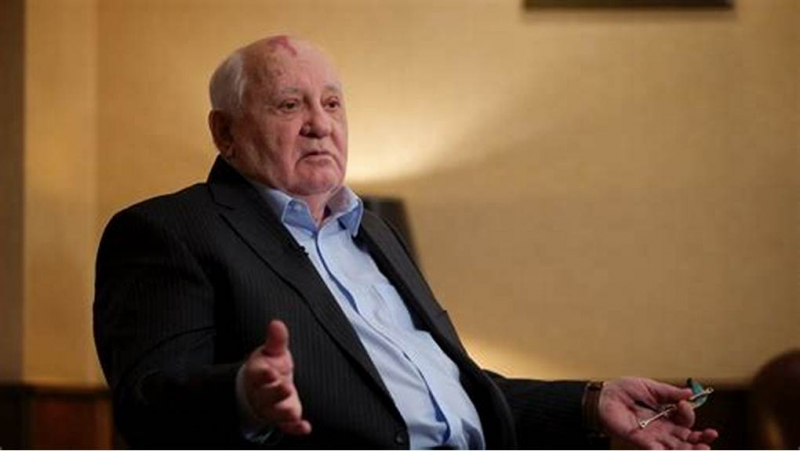
Source: Mic 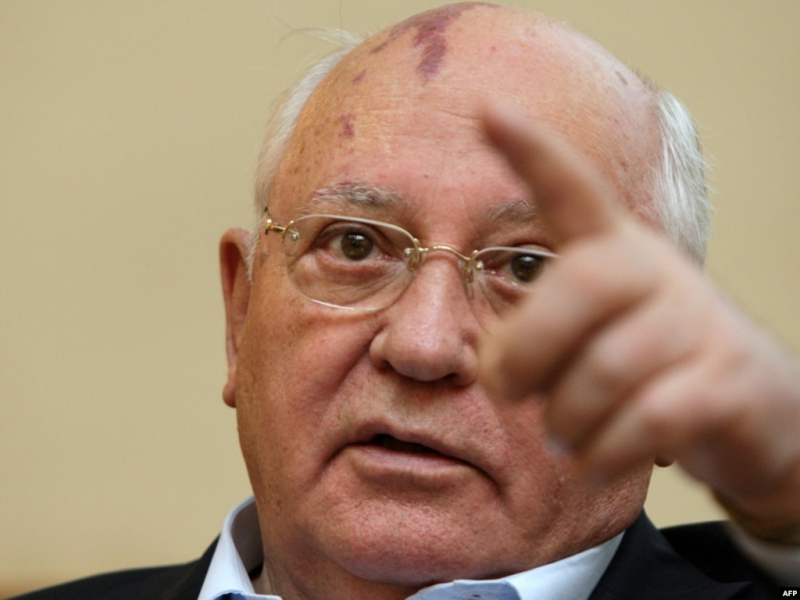
Source: Radio Free Europe/Radio Liberty -
Gorbachev returned to his native Stavropol after receiving his diploma to take charge of the local Komsomol. By using charm to win over powerful politicians, he was able to advance to the position of First Secretary of Stavropol by 1970, giving him considerable control over the area. It was simple for him to join the political elite in Moscow from there. Gorbachev was appointed Central Committee Secretary in 1978. With the promotion came a significant rise in Gorbachev's level of living: the couple now had access to shops, better medical care, and even a cook and maids. Gorbachev steadily advanced through the ranks of the regional government.
He was flattering to his superiors, winning the favor of important local politicians like Fyodor Kulakov, who the authorities regarded as politically trustworthy. Some of his coworkers disliked his success because of his ability to outwit competitors. He assumed leadership of the Stavropol City Komsomol after being elevated to First Secretary in September 1956. In April 1958, he was appointed deputy head of the Komsomol for the entire region. He was then provided with nicer housing, a two-room apartment with a private kitchen, toilet, and bathroom. He established a youth discussion group in Stavropol and worked to enlist the local youth in Khrushchev's agricultural and development efforts.
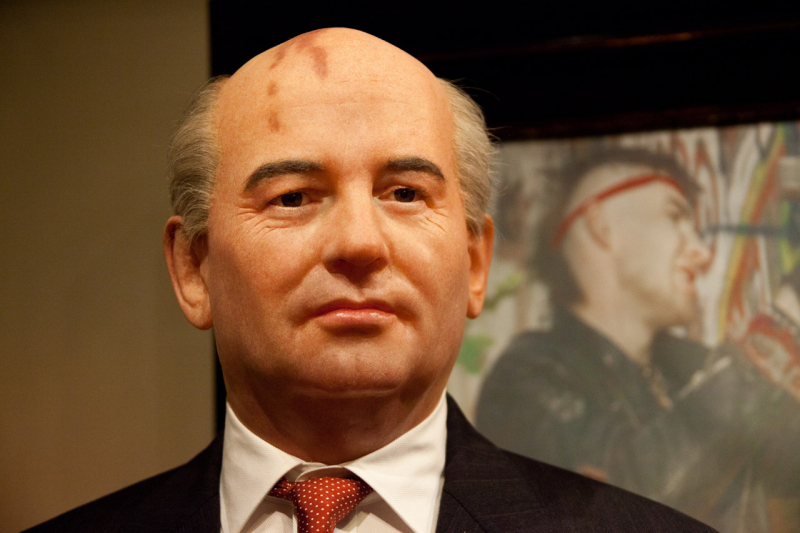
Source: publicdomainpictures.net 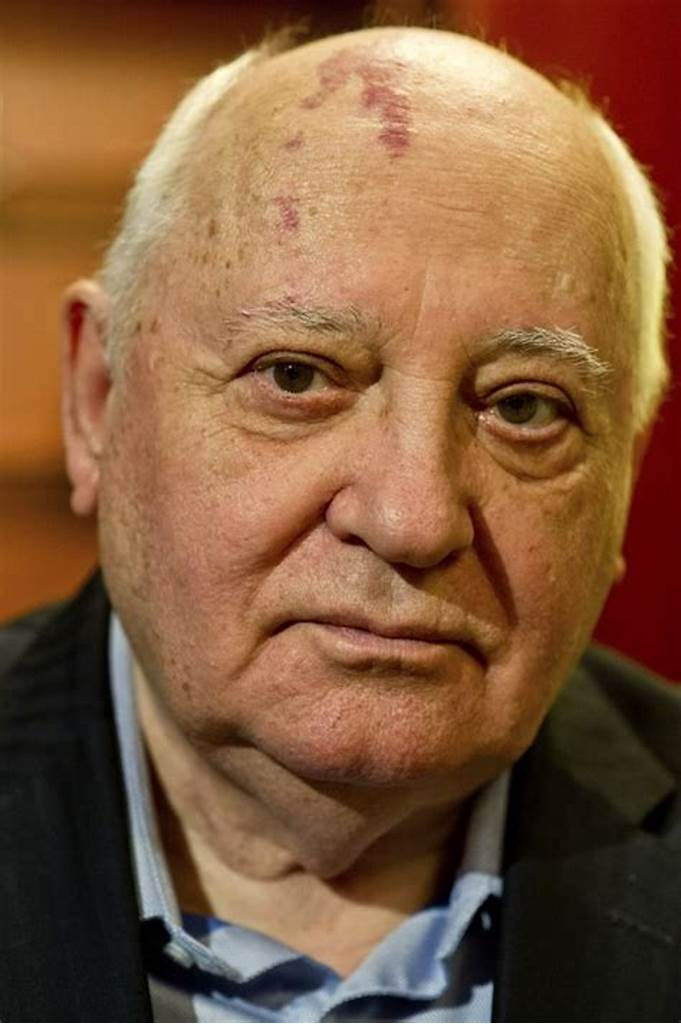
Source: The Times of Israel -
Konstantin Chernenko, the ailing and old head of the USSR, passed away on March 10. He had frequently been too ill to attend Politburo sessions. Gorbachev did not anticipate being suggested for the position. In February 1984, he had already been passed up for the position and was 54 years old.
Gorbachev was proposed as Chernenko's successor by Andrei Gromyko, a seasoned Politburo member who had influence with the General Committee. He received a unanimous vote to become the eighth General Secretary of the Soviet Union. None in the Soviet leadership anticipated that he would be such a dramatic reformer. Compared to his predecessors, Gorbachev had a different approach to leadership.
At the 1985 Red Square holiday celebrations, he barred the display of his photo and promoted candid and free discussion at Politburo sessions. He would stop to chat with people on the street. Gorbachev was perceived by the West as a less belligerent and more moderate Soviet leader, but some Western pundits thought this was a ruse to lull Western governments into a false feeling of security. His wife was his closest advisor and assumed the unofficial title of "first lady" by accompanying him on overseas tours; this breach of protocol led to animosity because of her public presence. Georgy Shakhnazarov and Anatoly Chernyaev were two of his other trusted assistants.
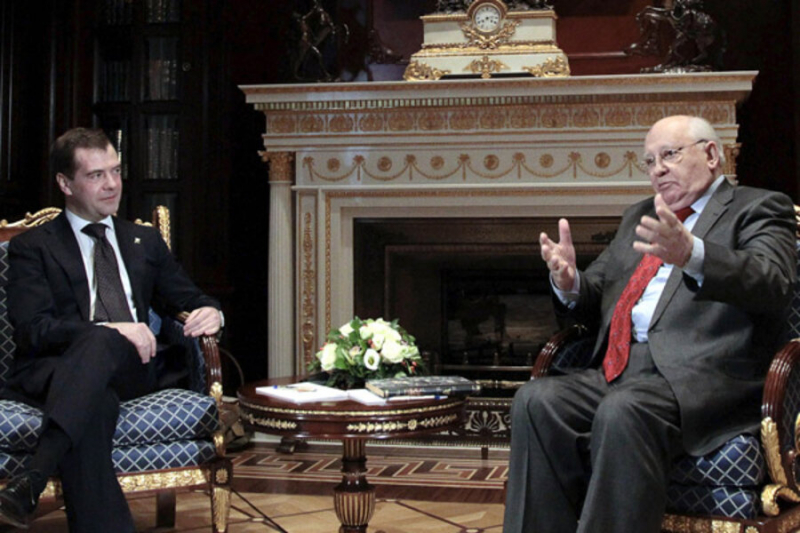
Source: The Christian Science Monitor 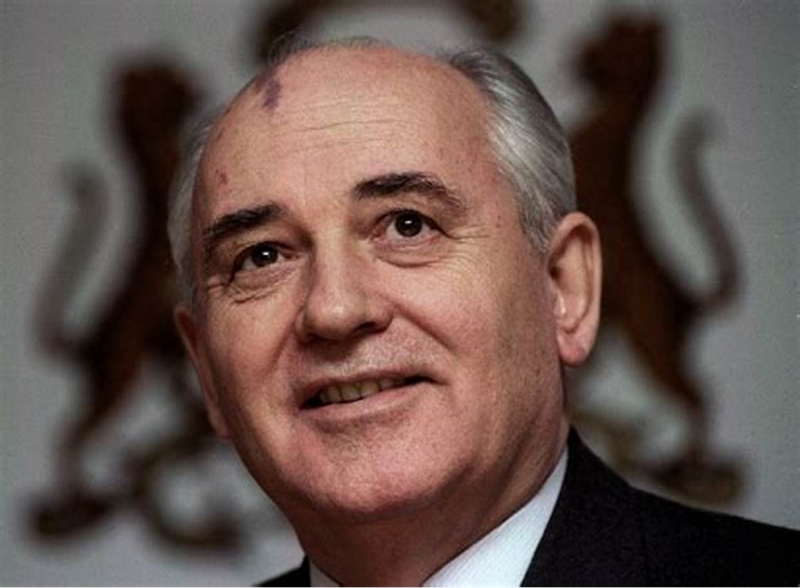
Source: nsarchive.gwu.edu -
In comparison to his predecessors, Gorbachev adopted a fundamentally different style of governance, engaging the populace and publicly confiding in Raisa, who rose to the status of unofficial "first lady." Gorbachev was aware that before implementing any serious changes, he would require the Politburo's backing. He reorganized the Soviet leadership in less than a year, moving his loyalists up the ranks quicker than Stalin, Khrushchev, or Brezhnev.
The first (and only) Soviet presidential election was held in March by the Congress of People's Deputies, and Gorbachev was the only contender. 313 votes were invalid or absent, and he received 1,329 in favor to 495 against. As a result, he was elected the Soviet Union's first executive president. De facto, the Politburo was replaced by a new 18-member Presidential Council. He proposed abolishing Article 6 of the Soviet constitution, which recognized the Communist Party as the "ruling party" of the Soviet Union, at the same Congress gathering. The one-party state's de jure status was challenged when the change was approved by Congress.
Greater freedom of the press and artistic expression were made possible by Gorbachev's famous policies of glasnost ('openness') and perestroika ('restructuring'), as well as attempts at democratization through the introduction of the secret vote and multi-party elections. However, Communist hardliners and bureaucrats, who were unwilling to relinquish control over the Union's economy, found even these minor reforms to be extremely unpopular. Even in August 1991, he had to deal with a quick coup.
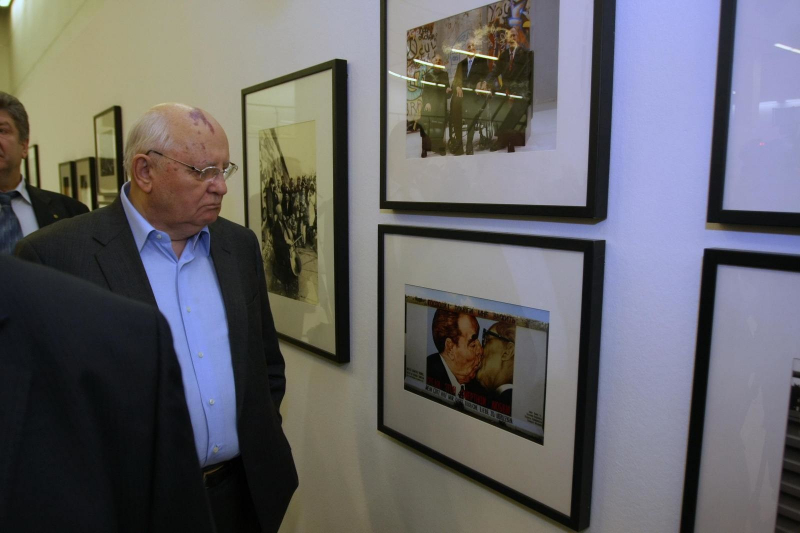
Source: robloxcomredeem.co 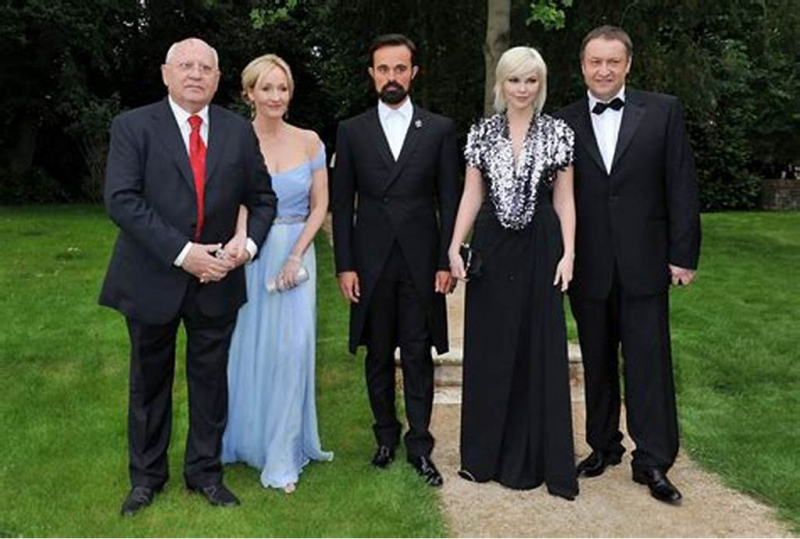
Source: zimbio.com -
Gorbachev worked to improve relations with the United States, the Soviet Union's Cold War foe, in addition to his internal reform programs. He and US President Ronald Reagan agreed to eliminate their respective nations' remaining intermediate-range nuclear arsenals when they signed a deal in 1987.
According to Gorbachev, maintaining positive relations with other countries, particularly the United States, was the only way to improve the Soviet Union's economy. Gorbachev reduced the Soviet military presence in the Warsaw Pact countries of Eastern Europe as a result of this. Additionally, this contributed to Eastern Europe's rapid collapse.
Gorbachev ordered the Soviet military's departure from the country's occupation of Afghanistan between 1988 and 1989. To ensure Afghanistan's allegiance to them in the Cold War against the mujahideen supported by the United States, the Soviets invaded Afghanistan in 1979. By the late 1980s, the Soviet army had lost about 15,000 soldiers and had failed to install a supportive government. Apart from avoiding embarrassment on the public stage, they had little motive to stay in Afghanistan.
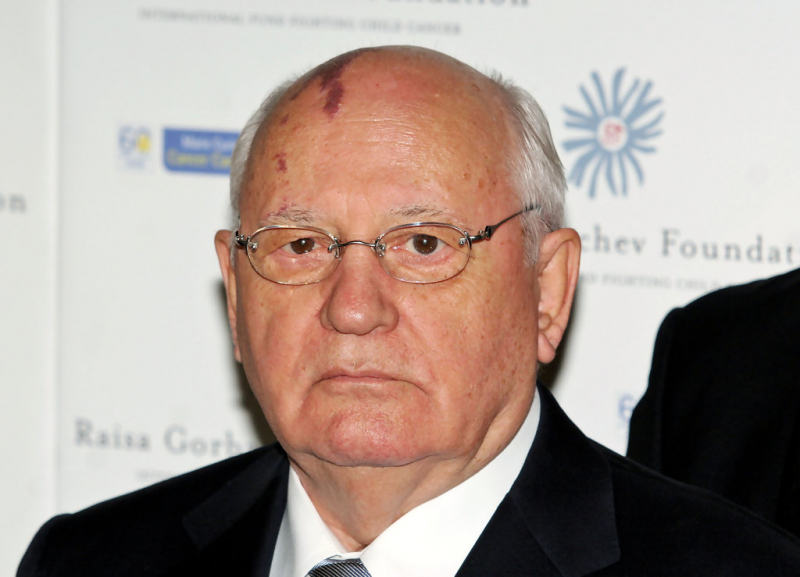
Source: Zimbio 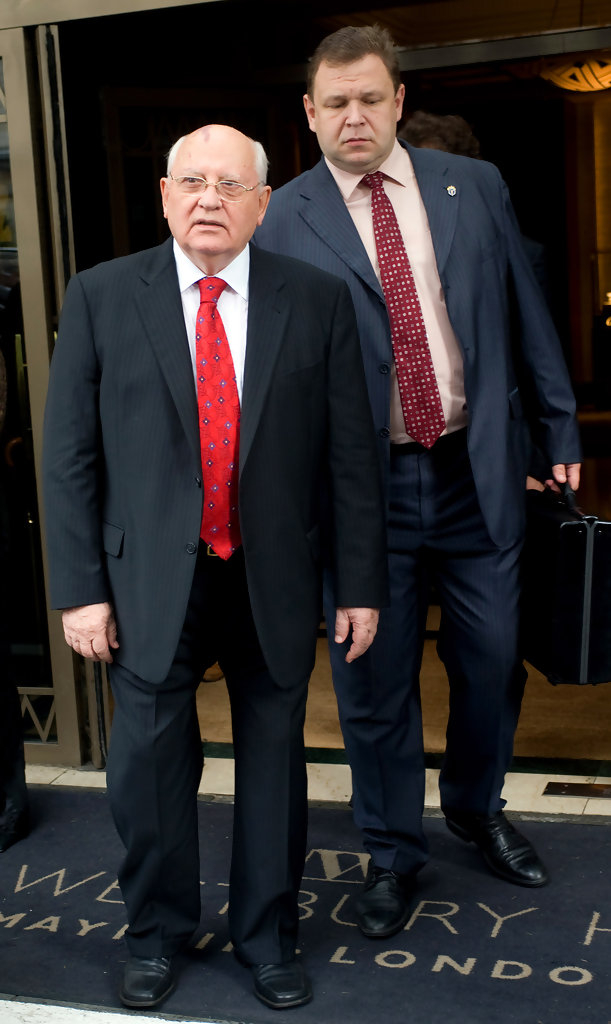
Source: Zimbio -
Gorbachev openly backed the reforms of nations in the Soviet Eastern European bloc while also implementing a bold new program of political, electoral, and diplomatic reform. Between 1989 and 1990, democratic elections took place in Poland, East Germany, Hungary, and Czechoslovakia, and Gorbachev committed to a gradual withdrawal of Soviet forces from each nation.
The "Iron Curtain," which had separated the world during the Cold War, had been torn down by the time Gorbachev consented to the reunification of East and West Germany in the summer of 1990. When discussing the collapse of the Soviet Union, Gorbachev has the most sway. When he gave the order for Soviet soldiers to seize Lithuania on January 11, 1991, he sent it on a downward trajectory toward oblivion. His misguided foreign and economic policies ultimately condemned the nation to annihilation.
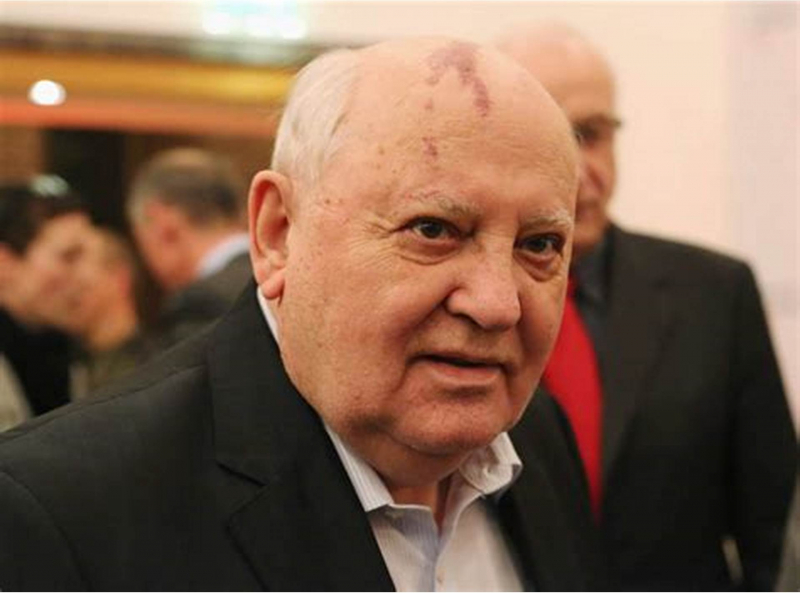
Source: k.starsinsider.com 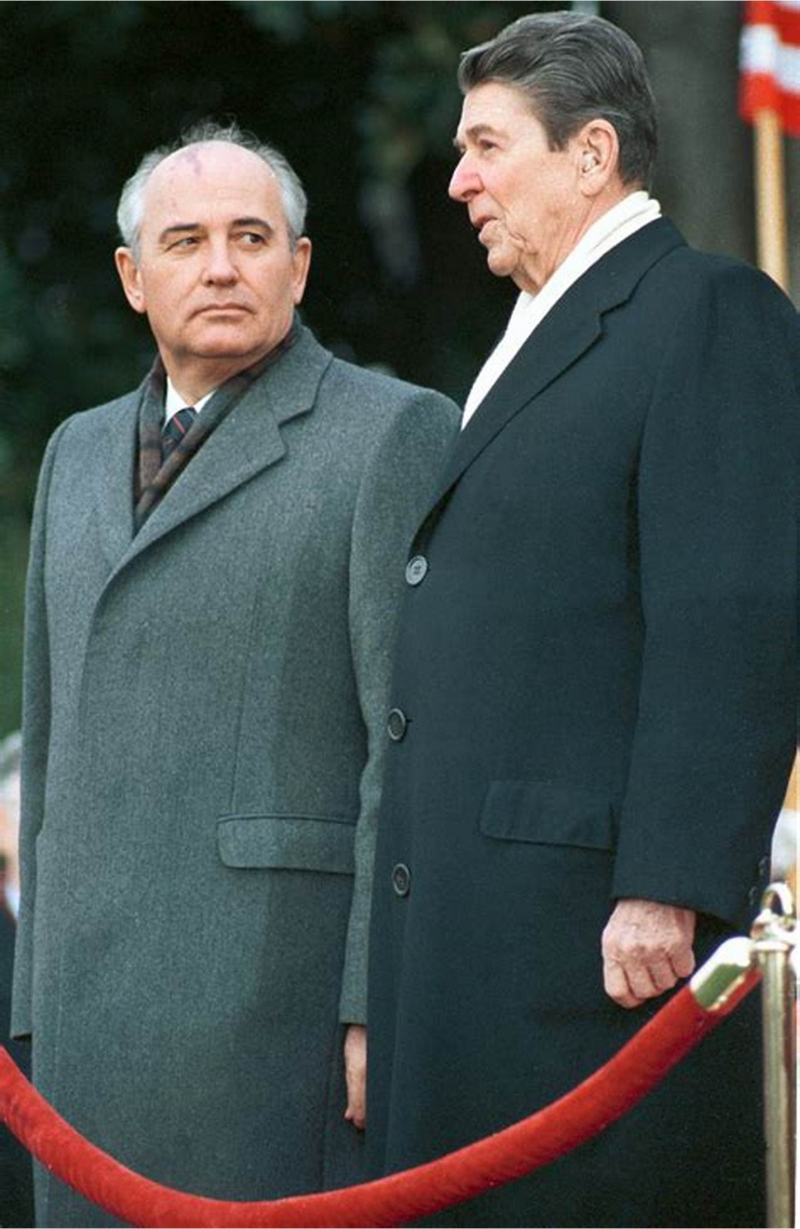
Source: Voice of America -
Gorbachev campaigned for the Russian presidency in 1996. Only 1% of the vote went to him. Nevertheless, he has continued to be a well-known public personality in Russia as a co-owner of the independent daily Novaya Gazeta and a participant in a number of think tanks.
After leaving government, Gorbachev rose to fame in the West and was widely praised for his contribution to the peaceful end of the Cold War. At the same time, Gorbachev had developed a bad reputation in Russia and was held responsible for the fall of the Soviet Union. Gorbachev polled at a meager 1% when he first announced his candidacy and ultimately failed to gain a higher level of support. According to opinion surveys, Gorbachev is incredibly disliked in Russia.
He was held responsible by many communists for both the Soviet Union's and the Communist Party's demise. Many proponents of market reform held him accountable for the failed changes that led to the collapse of the Russian economy.
Others were against his candidacy because they believed he would merely split the anti-communist vote (playing the role of a spoiler).
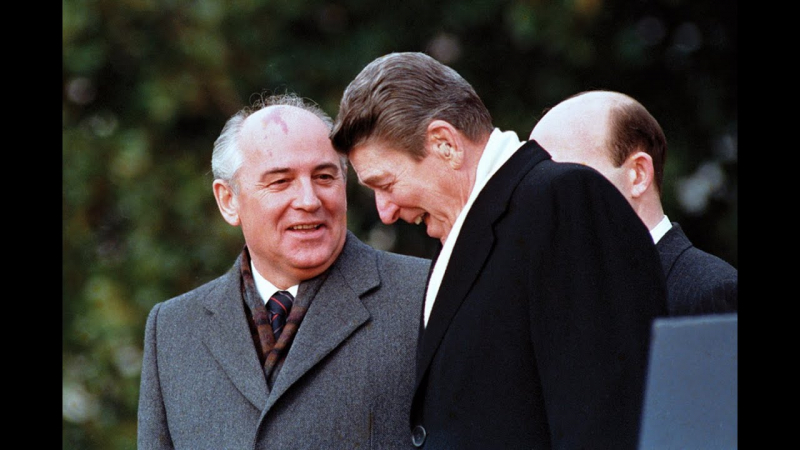
Source: YouTube 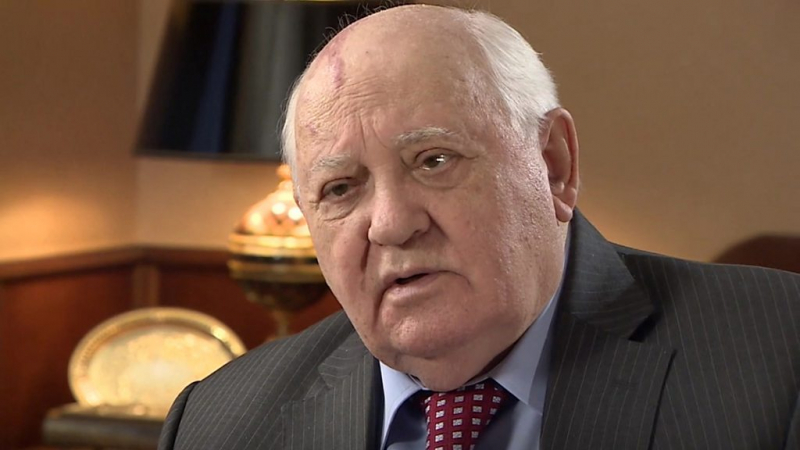
Source: BBC




























